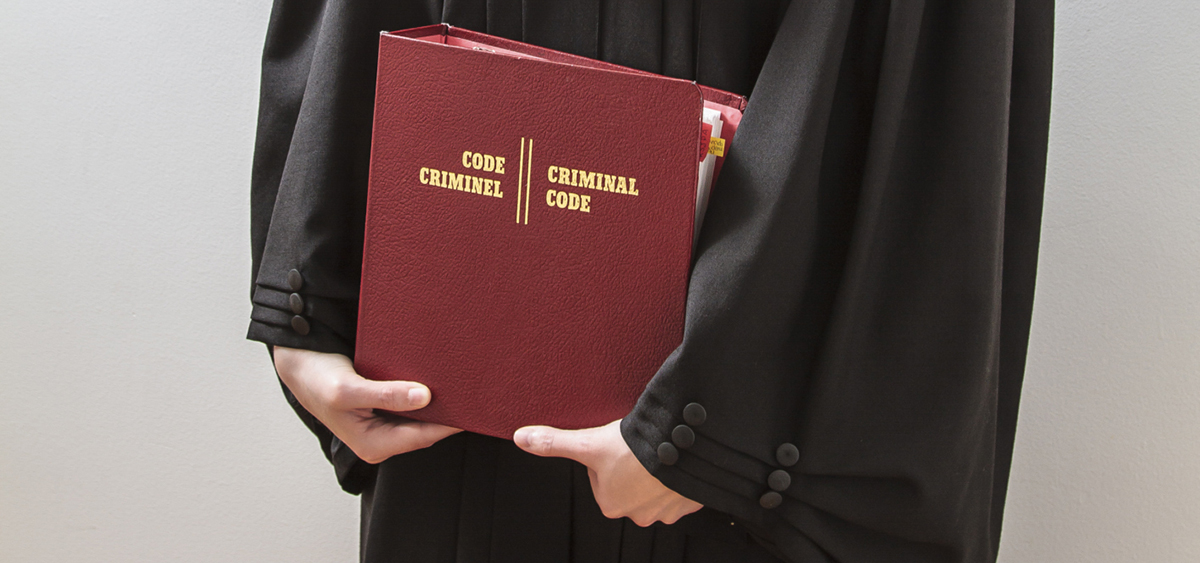Criminal law makes some acts illegal, such as murder and robbery. These acts go against our society’s basic values.
In Canada, most crimes and their punishments are listed in the Criminal Code. The punishments are called “sentences.”

What Happens if You Commit a Crime?
A person who does something that goes against the Criminal Code can be accused of committing a crime. This person then has to go to court to defend himself or to accept the punishment for his criminal actions.
Often, the victim reports the crime to the police. But it’s not the victim who takes the person to court. Instead, the government brings him to court on behalf of society.
A crime doesn’t always have a known victim. For example, there are often no victims identified in drug-related crimes. These crimes include manufacturing drugs, possessing them and trafficking them.
Criminal and Penal Prosecuting Attorneys
When the police believe that someone has committed a crime, they carry out an investigation. If they have enough evidence against that person, they send the file to a lawyer who works for the department of justice.
This lawyer is called a “criminal and penal prosecuting attorney.” This lawyer used to be called a “Crown prosecutor.” The criminal and penal prosecuting attorney decides whether the person will be charged with a crime. If charges are brought, the person must appear in court.
The Accused Is Innocent Until Proven Guilty
Every person accused of a crime has the right to a trial. Also, an accused is “presumed innocent” until found guilty by the court.
This is called “the presumption of innocence.” This presumption of innocence is important because the consequences of being found guilty are very serious.
For example, an accused who is found guilty of a crime might have to pay heavy fines or go to prison. He is considered a criminal and has a criminal record. So it’s important that the judge is sure that the accused committed the crime before finding him guilty.
Guilt Beyond a Reasonable Doubt
It is up to the criminal and penal prosecuting attorney to prove that the accused is guilty beyond a reasonable doubt. This means that the judge must be almost 100% sure that the accused is guilty. If the judge has a “reasonable” doubt, the accused must be found “not guilty.”
The accused is allowed to defend himself and try to provide evidence of his innocence. The aim of a defence is to put a reasonable doubt into the judge’s mind.
|
In some trials, it is not up to a judge to decide whether the accused is guilty. This job is given to 12 “ordinary” people called “jurors.” Together, they make up the “jury.” |
Differences Between Criminal and Civil Cases
The two main categories of law in Quebec are criminal law and civil law. The two categories are very different but are easy to confuse.
In a criminal case, the government takes the accused to court. The accused presents a defence and the judge (or jury in some cases) decides whether the accused is guilty. The judge then decides on the punishment, that is, the “sentence.”
In a civil case, people or organizations take each other to court if they can’t settle a disagreement on their own. They want a judge to find a solution. For example, a person can sue a neighbour in civil court for damaging his fence with a snow blower.
Sometimes one situation can lead to both a criminal case and a civil case. For example, a person punches a neighbour for damaging his fence and breaks the neighbour’s tooth. The government can take that person to criminal court because punching someone is a crime (“assault”). The injured neighbour can sue the other person in civil court to be paid back for the cost of fixing his tooth.







